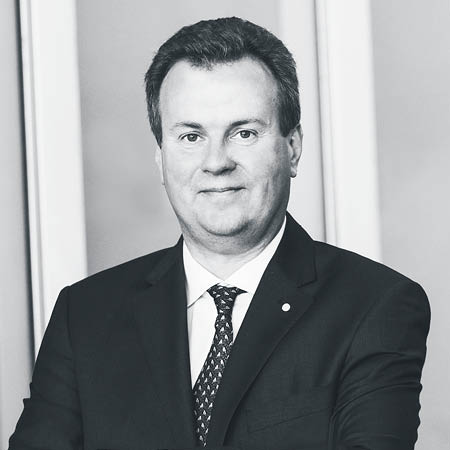With its extensive range of services in auditing, tax, consulting, finance, and legal, Deloitte Central Europe has breadth and influence right across the region. Its solutions help companies in a variety of industries, ranging from manufacturing and real estate to technology and health care, to achieve the best possible outcomes for their business. Deloitte Central Europe is part of Deloitte Touche Tohmatsus global network of member firms, and has more than 4,700 staff working from 37 offices in 18 countries.
Alastair Teare has been with Deloitte for more than 25 years, of which 22 years have been in Central Europe, and he has held a variety of roles over that period. He has built an impressive record of success, gaining ample experience in leadership and client service to ultimately lead the company forward as CEO of Central Europe. Appointed in 2012 and based in Hungary, Alastair today looks after all of the countries across the region, which includes Poland, the Czech Republic, Slovakia, and Romania. His key focuses are on growth and strategic rejuvenation.
“We want to become the leading firm,” Alastair explains. “When I took over, I felt that we had become very stale, we had lost impetus and we had become very defensive after the recession. I didn’t see any reason why we shouldn’t, first of all, be the same size as our competitors, and then ultimately become significantly larger.”
“I believe the reason I was appointed was because I was able to present a vision around a number of things. Basically, the most challenging thing we do is to act as a regional firm, not just as individual countries, so taking the whole breadth of the firm and using our best bits of expertise wherever we can across the region has been my focus. That is quite difficult to do because these markets are actually very localised.”
We were stuck in a structure of four geographical clusters that was not fit for purpose. We also had our financial advisory business riding on the top of that as an independent regional structure and it didn’t work. There was no substance behind most of the clusters. There was no way of logically and easily putting the partners together and allowing them to share their expertise; in fact, what I felt it did was just add unnecessary management layers. If the cluster head wasn’t in their country, partners often felt alienated and they weren’t super-energised.
“We moved to 10 geographical units, moved financial advisory back to being aligned with the country, or mini-cluster strategies. Our senior partners also believed that we needed to bring in more people. We felt that we needed to start refreshing our skill base and therefore we identified gaps that we had and we started hiring people. We brought on a lot of people in the first year, both at a partner and below partner level. That was really the key.”



